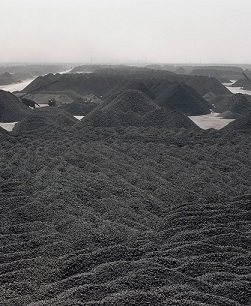Visa and green tape cuts in BCA's power plan
 Australia’s place as the future home of cheap energy is at risk, according to reports, from the rise of North American, Brazilian and East African resource projects.
Australia’s place as the future home of cheap energy is at risk, according to reports, from the rise of North American, Brazilian and East African resource projects.
News Corp media outlet The Australian is reporting on a blueprint for energy policy put together by the Business Council of Australia (BCA).
In it, analysts warns that Australia risks losing market share from its multi-billion-dollar resources projects, as cheaper overseas rivals make the cost of developing here higher.
“Our comparative advantage in energy is weakening,” the report, obtained by News Corp, says.
“If Australia does not act to improve our energy productivity, our comparative advantage in energy will continue to weaken.
“The Australian economy as a whole will be less competitive — putting at risk future opportunities for economic growth, jobs and wealth creation.”
The report rejects the call to help local manufacturers by reserving gas for local use, saying that new projects should be fast-tracked instead.
The BCA compiled the paper as its contribution to shaping the Government’s energy white paper, which Industry Minister Ian Macfarlane says will be used to secure Australia’s position as an energy super power.
The report pushes five key areas for reform:
- slashing the cost of production on energy projects
- cutting constraints on gas resource development
- reaching a bipartisan deal on the renewable energy target to overhaul the energy industry
- allowing higher tariffs for peak times of the day
- improving the efficiency of the liquid-fuel industry to combat the rise of Asian mega-refineries
To meet some of its ends, the BCA calls for streamlined planning approvals, training and migration programs to quickly fill skills shortages, and a “stable” tax regime.
The report says there should be more “flexibility” in temporary migration schemes, including enterprise migration agreement, to speed up the process for companies to bring in foreign workers for big projects.
Unions argue that 457 visas can be used to undercut wages, the BCA uses the example of a lead engineer on a 457 visa, saying a foreign workers would cost $523,192 a year, compared to $349,312 for a local.







 Print
Print